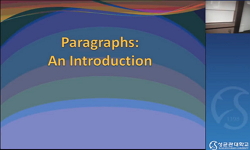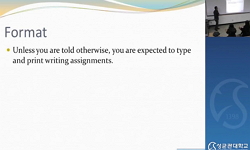Due to the importance of English in global society, English education at the college level in Korea has continually developed. The beauty faculty has also considered that English education is essential for success in their field. However, different ap...
http://chineseinput.net/에서 pinyin(병음)방식으로 중국어를 변환할 수 있습니다.
변환된 중국어를 복사하여 사용하시면 됩니다.
- 中文 을 입력하시려면 zhongwen을 입력하시고 space를누르시면됩니다.
- 北京 을 입력하시려면 beijing을 입력하시고 space를 누르시면 됩니다.

미용예술과 학생들의 특수목적영어(ESP) 학습동기 및 효과 = ESP Learning Motivations and Effects on Cosmetology Students
한글로보기https://www.riss.kr/link?id=A99587226
- 저자
- 발행기관
- 학술지명
- 권호사항
-
발행연도
2012
-
작성언어
-
-
주제어
English ; ESP ; Cosmetology ; Motivation
-
KDC
500
-
등재정보
KCI등재
-
자료형태
학술저널
- 발행기관 URL
-
수록면
1022-1028(7쪽)
- 제공처
-
0
상세조회 -
0
다운로드
부가정보
다국어 초록 (Multilingual Abstract)
Due to the importance of English in global society, English education at the college level in Korea has continually developed. The beauty faculty has also considered that English education is essential for success in their field. However, different approaches to the study English are needed for cosmetology students at college as they relatively little time to study English and, for the most part, it is not the main interest of their studies. Therefore, recently an ESP (English for Specific Purpose) approach, which focuses on the learner`s need, purposes and interest, has been put into practice at colleges. The purpose of this study is to investigate the ESP class implemented at colleges and discover the main motivations for studying in this way. For this study, eighty-eight cosmetology students participated and were surveyed in June 2012. Participants were asked to answer questions regarding their English learning motivation. This study overviews the definition of the ESP approach and analyses the effects of English learning motivation on ESP study. It also distinguishes the use of different English learning motivations by English ability. The results indicate that instrumental motivation had the greatest influence on ESP study, followed by extrinsic motivation, intrinsic motivation, and integrative motivation. This means that most cosmetology student study English to get paid better and to get a good job. The study has also found that highly- motivated students are prone to have better English abilities.
동일학술지(권/호) 다른 논문
-
아로마오일(유칼립투스, 레몬, 티트리) 흡입이 면역세포에 미치는 영향
- 한국미용학회
- 황윤영 ( Yun Young Hwang )
- 2012
- KCI등재
-
숙성 요(尿)에 의한 40-60대 여성의 안면피부 개선 효과
- 한국미용학회
- 윤정희 ( Jung Hee Yun )
- 2012
- KCI등재
-
아로마 복부비만관리 프로그램이 성인여성의 신체 구성, 렙틴 및 만족도에 미치는 영향
- 한국미용학회
- 김선경 ( Sun Kyung Kim )
- 2012
- KCI등재
-
한국 전통 재료와 디자인 네일아트의 특성이 소비자의 즐거움과 경험적 가치에 미치는 영향
- 한국미용학회
- 편수명 ( Shu Myung Pyun )
- 2012
- KCI등재




 KISS
KISS






